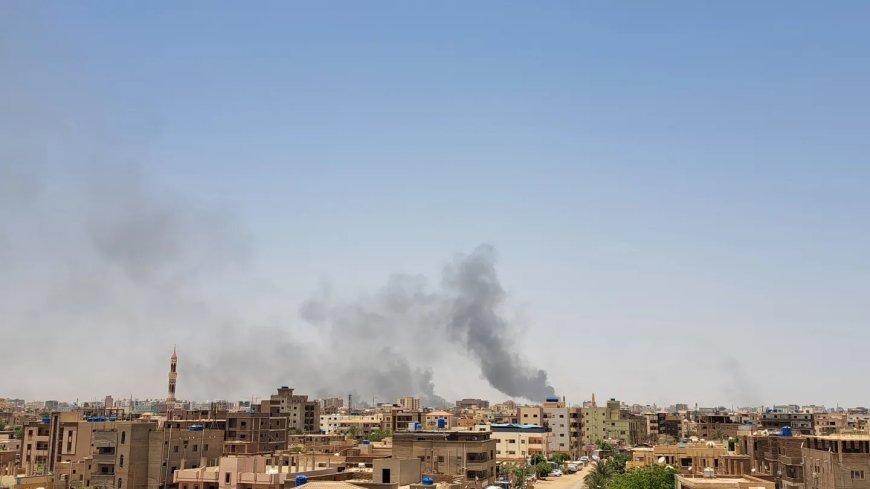Failed Ceasefire: Russia's Complex Role in Sudan's Deadly Conflict Revealed"
Russia's attempted ceasefire in Sudan's deadly conflict has failed, revealing complex dynamics and concerns about its role. Geopolitics, violence, human rights abuses, and prospects for peace remain unresolved in the region.

Russia's Role in the Deadly Sudan Conflict: Attempted Ceasefire Falls Apart
The ongoing conflict in Sudan has been a source of concern for the international community, with reports of violence and humanitarian crises emerging from the region. Recently, an attempted ceasefire brokered by Russia was heralded as a potential step towards peace. However, the situation quickly unraveled, revealing Russia's complex role in the conflict.
The conflict in Sudan has its roots in long-standing ethnic tensions and power struggles. In recent years, clashes between the government forces led by General Abdel Fattah al-Burhan and the rebel groups, particularly in the Darfur region, have resulted in widespread violence, displacement of civilians, and human rights abuses.
In an effort to address the situation, Russia stepped in as a mediator and brokered a ceasefire agreement between the Sudanese government and the rebel groups. The ceasefire was seen as a glimmer of hope for a peaceful resolution to the conflict, with both sides agreeing to stop the fighting and engage in negotiations.
However, the ceasefire quickly fell apart, with reports of continued violence and violations of the agreement. This has raised questions about Russia's role in the conflict and its true intentions.
Russia's involvement in Sudan has been viewed by some as an attempt to expand its influence in Africa and gain access to valuable resources, such as oil and minerals. Sudan is strategically located in the Red Sea region and has significant economic potential. By positioning itself as a mediator in the conflict, Russia has sought to strengthen its political and economic ties with Sudan, while also projecting itself as a global player in conflict resolution.
However, critics argue that Russia's involvement may not be purely altruistic. Some accuse Russia of providing military support to the Sudanese government forces, despite an arms embargo imposed by the United Nations. There have been reports of Russian mercenaries operating in Sudan, allegedly supporting government forces in their military campaigns against rebel groups.
Moreover, Russia's role in Sudan has also been seen as complicating efforts by other international actors, such as the United States and the European Union, to address the conflict. The competing interests of different external powers, including Russia, in Sudan have further complicated the situation and hindered the prospects for peace.
The situation in Sudan remains fluid, with ongoing violence and human rights abuses affecting the civilian population. The failed ceasefire has highlighted the complexities of the conflict and Russia's role in it. As the international community continues to grapple with the situation, finding a sustainable solution to the conflict remains a daunting challenge.
In conclusion, while Russia's attempted ceasefire in Sudan was initially seen as a positive step towards peace, it quickly fell apart, revealing the complex dynamics at play in the conflict. Russia's role in Sudan, viewed by some as strategic and self-serving, has raised questions about its true intentions and impact on the prospects for peace in the region.

 Ritu Kataria
Ritu Kataria